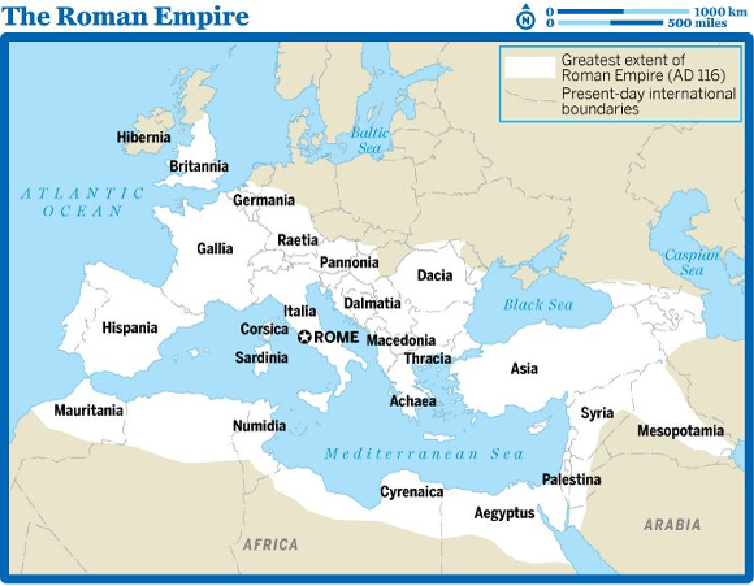Travel Reference
In-Depth Information
Democracy & the Rule of Law
In broader cultural terms, Roman innovations in language, law, government, art, architec-
ture, engineering and public administration remain relevant to this day.
One of the Romans' most striking contributions to modern society was democratic gov-
ernment. Democracy had first appeared in Athens, in the 5th century BC but it was the
Romans, with their genius for organisation, who took it to another level. Under the Roman
Republic (509−47 BC), the Roman population was divided into two categories: the Senate
and the Roman people. Both held clearly defined responsibilities. The people, through
three assembly bodies - the Centuriate Assembly, the Tribal Assembly and the Council of
the People - voted on all new laws and elected two annual tribunes who had the power of
veto in the Senate. The Senate, for its part, elected and advised two annual consuls who

